Table of Contents
Magnesium is the 4th most abundant mineral in your body. And critical for optimal cognitive health. It is a cofactor in more than 600 enzymatic reactions in your body.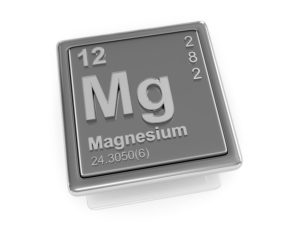
Magnesium assists in converting energy supplied by food to a useable form to produce adenosine triphosphate (ATP). Your primary cellular fuel source made within mitochondria. Magnesium is also needed for the synthesis of RNA and DNA.[i]
In your brain, magnesium regulates the activity in neuron ion channels. These channels are like tiny electrical switches. Governing the flow of neurotransmitters within neurons.
Magnesium also regulates brain synaptic plasticity. Which is critical for learning and memory.
Magnesium is critical to all of your body’s electrical and electrochemical activities. It’s involved in muscle contractions, heart rhythm, nerve function and brain cell activity.
Low blood magnesium levels show up as seizures, hypertension, stroke, migraines, and ADHD. It can also result in insulin resistance and type II diabetes.
Magnesium helps:
- Neuroplasticity: Magnesium controls the ion channels in brain cells. These tiny electrical switches control the transmission of electrical signals within and between neurons. Directly regulating learning and memory.
- Brain Energy: Magnesium is necessary for ATP synthesis. It’s needed for the Krebs cycle that turns sugar and fat from your diet into ATP. The primary fuel source produced within mitochondria in brain cells.
- Neuroprotectant: Low levels of magnesium in your diet correlate to a high incidence of neurodegenerative disease.
What is magnesium?
Magnesium plays an essential role in neuroplasticity and ATP production which is fundamental to learning, memory and cognitive function.[ii]
Magnesium is the 4th most abundant mineral in your body. But many of us in Western society are living with a magnesium deficiency. And most are unaware of this deficiency.[iii]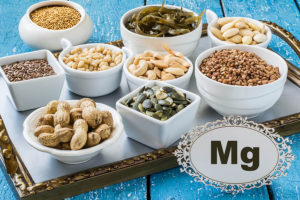
Dietary Magnesium Intake
Magnesium in our diet comes from foods like green leafy vegetables, beans, nuts, seeds, whole grains, poultry, beef, and salmon. Tap, mineral and bottled water also used to be good sources of magnesium. But varies by brand, source and if the magnesium has been filtered out during processing.
Needless to say, there used to be many magnesium rich foods that played an important role in your magnesium status and intake. But now most need to get magnesium chelate by using a supplement every day.
Magnesium is an essential part of neuroplasticity. Brain plasticity is the ability of your neurons to make cell-to-cell connections to form and regulate learning and memory.
With aging, or insufficient magnesium in our diet, we lose brain plasticity which results in a loss of cognitive function.[iv] This is why a young person, with an active, flexible brain easily catches new ideas. And simply thinks faster than a person whose brain has lost plasticity and is more fixed in their patterns.
Magnesium is also crucial to synthesizing ATP (adenosine triphosphate). The primary energy source produced within mitochondria in every one of your cells. Including the brain.
ATP must be bound to a magnesium ion (Mg-ATP) in order to be biologically active. This is critically important to how your brain’s mitochondria and cells use ATP. Including the synthesis of DNA and RNA.
To put this in perspective, over 300 enzymes and over 600 enzymatic reactions require the presence of magnesium ions for their catalytic action. Including all enzymes utilizing ATP.
Magnesium is even involved in how the other nootropics and dietary supplements in your stack are utilized by cells in your brain. The bottom-line is magnesium could be one of the most important additions to any nootropic stack.
How does Magnesium Work in the Brain?
Magnesium boosts brain health and function in several ways. But two in particular stand out.
- Magnesium is critical for neuroplasticity. Your brain is capable of forming new connections between neurons. When you take in new information, a signal is sent across the synaptic space between neurons. The ability of your brain to form these new connections is referred to as neuroplasticity.
This neuroplasticity is how learning and memories are formed. When these signaling pathways break down, memories fade. And you start to forget simple things like people’s names or phone numbers.
A simple example of how this works is reading this article. As you read this, your brain is forming and reforming new neural connections. When things aren’t optimal, you find yourself reading and re-reading sentences.
Magnesium is critical for maintaining this neuroplasticity. And your ability to learn and form memories. Magnesium ions control the ion channels, or electrical switches for this signaling.[v]
The more signals that these ion channels transmit, the stronger the connections between neurons. And the stronger the formation of the resulting memory.
Many studies demonstrate the detrimental impact of insufficient magnesium on optimal cognitive function.[vi]
- Magnesium is required for ATP synthesis. ATP (adenosine triphosphate) is the main energy source produced within mitochondria in brain cells. 20% of your body’s total ATP is located in your brain.
For ATP to be biologically active, it must be bound to a magnesium ion (Mg-ATP). [vii] About two thirds of your brain’s energy budget is used to help neurons send signals to neighboring neurons. The remaining third is used for housekeeping, or cellular maintenance.
Wei Chen, a radiologist at the University of Minnesota Medical School was co-author of a study on the brain’s use of ATP. The team used magnetic resonance spectroscopy (MRS) to measure the brain’s energy production during shifts in activity.
Their study on lab rats noted that when the rats were knocked out, they produced 50% fewer ATP molecules than when mildly anesthetized. Chen noted that the ATP produced when the brain is inactive goes to cell maintenance.[viii] This housekeeping is important for keeping the brain tissue alive.
The other two thirds are needed for other cellular processes including recharging neurons so they can fire. And create the electrical signals needed for neuron communication. Required for learning, memory, recall and cognition.
Without magnesium, your brain cannot produce ATP, and all brain function breaks down.
How Things Go Bad
As we get older, our brain chemistry and metabolism changes.
↓ ATP levels decline in mitochondria
↓ Cognition, learning, memory and recall decline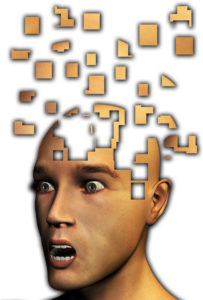
↓ Brain cell plasticity declines
↓ Free radicals damage brain cell mitochondria
All of these changes can happen at any age. And can be a result of not getting an adequate supply of magnesium.
So magnesium supplementation can help for age-related cognitive decline, as well as anyone who wants to boost cognition, learning, recall and memory.
Magnesium Benefits
Magnesium plays a critical role in supporting neuroplasticity which is fundamental for a youthful, flexible brain. A brain that is optimized to support cognition, learning and memory.
Raising brain magnesium levels has been proven to restore neuroplasticity and improve cognitive function.[ix]
Magnesium deficiency has been associated with Alzheimer’s Disease. Scientists have found that treatment with magnesium-L-Threonate decreases β-amyloid deposits in the brain. And is able to rebuild signaling pathways in neurons helping to restore memory.[x]
And magnesium is required for ATP synthesis in brain cells. Providing the mental energy needed for cognition, memory, recall and learning.[xi]
How does Magnesium Feel?
 Most neurohackers report an increased level of focus, energy, memory, and cognitive ability when supplementing with magnesium.
Most neurohackers report an increased level of focus, energy, memory, and cognitive ability when supplementing with magnesium.
You should also experience an improved quality of sleep. And have an overall improvement in mood.
Magnesium Clinical Research
One of most common reasons we use nootropics is to boost memory and mental energy. Memory loss drastically reduces quality of life. And simple brain fog makes it difficult to accomplish the simplest of tasks.
Research has shown that magnesium is involved in memory, learning and cognition on several levels. And supplementing with magnesium is one of the most fundamental things you can do to boost cognition.
Magnesium improves long-term memory
Synapses in the hippocampus and other areas of your brain strengthen the more they’re used. Even brief repetitive activity results in a substantial increase in synaptic strength. The results can last for several hours. Or even weeks afterwards. This is called ‘long-term potentiation’.[xii]
Several studies have been conducted on magnesium supplementation and its effects on memory in the last 20 years. With positive results. This study on aged and young rats found that adding magnesium to their food improved learning.[xiii]
Magnesium relieves depression
Researchers have found magnesium works in the hippocampus to suppress the release of the stress hormone ACTH (adrenocorticotropic hormone). This is the hormone that tells your adrenal glands to release more cortisol and adrenaline.
Too much cortisol eventually damages the hippocampus in the brain. This causes a negative feedback loop which results in even more stress. Which is toxic to the brain and your entire body. And one of the causes of chronic depression.
A study was done with 5,708 people aged 46-49 and 70-74 years old in Norway. The aim of the study was to examine the association between magnesium intake and depression and anxiety.
The researchers concluded that low magnesium intake is related to depression. And they stated, “These findings may have public health and treatment implications.”[xiv]
Another study done with 12 subjects found that magnesium supplementation improved sleep and lowered the stress hormone cortisol. Concluding that magnesium has “possible efficacy… as a mood stabilizer”.[xv]
Magnesium may relieve symptoms of ADHD
Magnesium in the treatment of ADHD is becoming more mainstream. And there is a growing body of research that supports the idea that one of the factors causing ADHD is a lack of magnesium.
A study in Poland showed that 95% of the children examined with ADD or ADHD were magnesium deficient.[xvi]
Magnesium Recommended Dosage
Recommended magnesium dosage in most common forms is 400 mg per day. But the problem is most magnesium supplements don’t work well as a nootropic. Because they don’t cross the blood-brain barrier.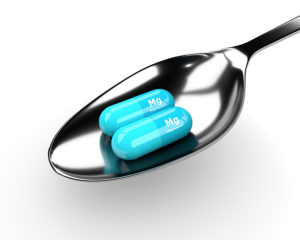
Research begun at MIT by Dr. Inna Slutsky came up with a new magnesium supplement called Magnesium-L-Threonate (MgT). This new magnesium compound easily crosses the blood-brain barrier.[xvii]
This form of magnesium was patented and now produced by MagteinTM Science. Several supplement companies sell magnesium with this branded form of magnesium.
Recommended dose of Magnesium-L-Threonate is up to 1 gram per day to avoid magnesium deficiency.
Chelated magnesium and lab-grown magnesium are suitable alternatives and covered in more detail below.
Magnesium is water-soluble so you don’t need to take it with a meal, or healthy fat.
Magnesium Side Effects
Most forms of magnesium can cause diarrhea, and bloating, and can lower high blood pressure if used in excess. So, be careful if you are using meds to lower blood pressure because using too much magnesium can mess with how this med works.
Magnesium-l-Threonate contains less elemental magnesium per dose and should not cause gastrointestinal upset.
Best type of Magnesium to buy
Magnesium is sold as magnesium aspartate, Bisglycinate, citrate, lactate, oxide, chloride, Taurate, magnesium L-Threonate, pidolate, magnesium citrate, and magnesium sulfate. I suggest avoiding magnesium oxide or citrate for nootropic use because they cannot easily cross the blood-brain barrier.
Depending on the type of magnesium; it comes in capsules, chewable tablets, powder, extended release tablets, or in a liquid solution.
Magnesium oxide is widely available in supermarkets, drug stores and vitamin shops. It’s popular because it’s cheap to manufacture. But it’s not chelated, and your body does not recognize it as a mineral it can readily use.
As an individual supplement, the patented form of magnesium-l-Threonate (MgT) called MagteinTM easily crosses the blood-brain barrier. And is recommended because even in high doses does not cause diarrhea.
Most multivitamins include a small amount of magnesium oxide which is useless as an ingredient.
A far better option is Click for Performance Lab® Magnesium providing 150 mg elemental magnesium. One dose is 3 NutriCaps® Pullulan Capsules with a little Nu-FLOW® Rice Concentrate used as a flow agent.
One of the many benefits of magnesium as a nootropic is in helping you fall asleep and stay asleep. But you need higher doses of magnesium to accomplish this. And I get my extra magnesium from …
Click for Performance Lab® Sleep which contains a combination of magnesium BiGlycinate, magnesium Taurate, and NutriGenesis® magnesium (100 mg). This sleep stack also contains L-Tryptophan (200 mg), CherryPURE® Tart Cherry Concentrate (500 mg), and Lemon Balm Extract (200 mg).
The magnesium in this sleep stack works with L-Tryptophan to help synthesize serotonin which then produces melatonin in your brain. Tart Cherry is a natural source of melatonin. And Lemon Balm helps boost the use of GABA in your brain. I highly recommend this nootropic sleep stack, and you can find my full review here.
Nootropics Expert Recommendation
Magnesium up to 1 gram per day
 I recommend using Magnesium as a nootropic supplement.
I recommend using Magnesium as a nootropic supplement.
Your body does not make Magnesium on its own. So to get its benefits it needs to come from your diet. Or you must take it as a supplement.
Magnesium is especially helpful for boosting memory, learning, recall, mood and cognition.
Magnesium is also particularly useful to help alleviate some of the symptoms of ADHD. And to help restore memory caused by neurodegenerative disease like Alzheimer’s.
While most forms of magnesium are helpful for overall health, most are not very helpful for cognitive health. So choose your magnesium supplement wisely and perhaps even pair with Vitamin D to avoid Vitamin D deficiency.
Magnesium is also useful to help you fall asleep and stay asleep. I recommend my favorite sleep stack Click for Performance Lab® Sleep which has magnesium, L-Tryptophan, CherryPURE® Tart Cherry extract, and Lemon Balm extract.
As an individual nootropic supplement, I recommend magnesium-L-Threonate (MgT). Because MgT has been proven in the lab to easily cross the blood-brain barrier. And to boost cognition.
And if you are counting on getting at least some magnesium from your multivitamin supplement, know that most brands use magnesium oxide which is cheap and not bioavailable.
I use and highly recommend: Click for Performance Lab® Magnesium

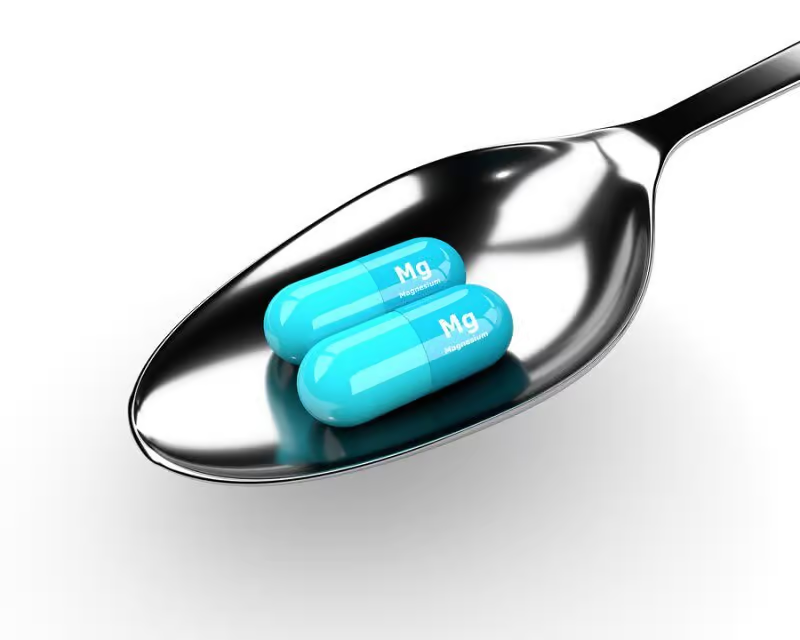
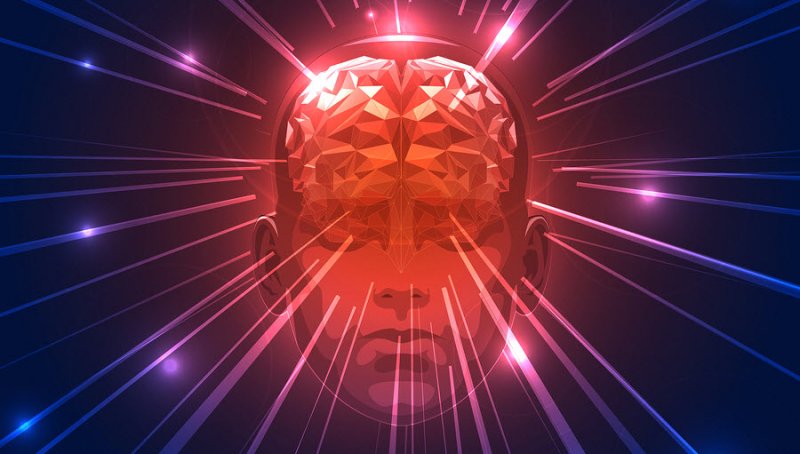





Join The Discussion - 273 comments
Teresa Miller
June 18, 2020
I have a couple of questions:
(1) You don’t mention Magnesium Malate at all, and I had read/heard that it was a gentle form of magnesium that compares to citrate or glycinate in bioavailability.
(2) When taking Magnesium-L-Threonate, most of the brands I’ve looked at provide the following dosage recommendations: 3 capsules daily providing 150 mg of elemental magnesium from 2085 mg of Magtein Magnesium-L-Threonate. Since this is only 150 mg of elemental magnesium, do you recommend supplementing with additional mag? From another source, or all from threonate?
Thank you. I just found your website yesterday, and am really enjoying your information!
David Tomen
June 18, 2020
Teresa, dosage of magnesium varies. As long as it doesn’t cause diarrhea you should be fine.
Aleksandar
June 1, 2020
Hi David,
Is it ok to take Glycinate form of magnesium up to 800 mg/day divided in two daily doses, first half AM and second before bed? Aiming at both reducing daytime anxiety (in combination with other supplements) and improving sleep.
Thanks
David Tomen
June 1, 2020
Aleksandar, that’s what I do and it’s fine. The side effect of too much magnesium is usually diarrhea. If that happens you’ll know to back off some.
Laura
May 3, 2020
Hello David,
I normally take magnesium capsules, today i decided to take them directly put them on the spoon and when i took them my mouth tasted like metal and my tongue burned.
¿Could you explain or have any idea why is it?
Thank you so much
David Tomen
May 4, 2020
Laura, magnesium is a mineral. But it is available in several different formulations. For brain health and cognition you need a chelated magnesium like Glycinate or L-Threonate. The additives are going to contribute to their taste as well.
But not sure why you’d want to swallow a powder on a spoon. Capsules or tablets work well.
Mark
April 12, 2020
The latest research seems to indicate Sodium and Potassium should ideally be at a 1:1 ratio. It also seems to indicate the same for Magnesium and Calcium, which makes sense when you think of it. Even though there’s only 25 mg of Magnesium, it is used in a few thousand metabolic reactions. The body hangs onto Calcium but Magnesium is just thrown away. Reference “Magnesium Miracle” Dr Carolyn Dean and Morley Robbins’ (Magnesium) Root Cause Protocol. And FYI, I am someone who experiences the laxative effect on 100 mg of Magnesium. Where your tipping point is depends on your gut health I think.
Bes
January 9, 2020
Hello David,
i have a lot of triggerpoints in my body. I’ve tried dry needling,but they keep coming back. Do you know if it’s possibly because i have a magnesium defficiency, which leads to muscle tension? And i have another question. Does magnesium bisglycinate also work for muscle relaxation?
Thanks in advance!
David Tomen
January 9, 2020
Bes, the only way to find out if it’s a magnesium deficiency is to take magnesium every day for a couple of weeks and see if the problem goes away. Then you’ll know for sure.
When it comes to minerals the best supplements are chelated versions or grown from a special kind of yeast. Try 400 mg magnesium bisglycinate before bed for a couple of weeks and see what happens.
Bes
January 13, 2020
thanks David. I have a question. A lot of brands do have for example 500 mg (of which is 100mg elemental magnesium). Do i need 400mg in total or 400mg elemental magnesium in a capsule.
David Tomen
January 13, 2020
Bes, you need 400 mg of elemental magnesium. But I don’t recommend increasing your dosage on some of these supplements just to get to 400 mg. Because it depends on what the remaining 400 mg is in that 500 mg supplement. Too much magnesium will cause diarrhea.
Marek Šedina
November 22, 2019
Hi David, i tottaly agree with 400mg total… thats why i want to ask you if you take only performance multi and Sleep? because in performance sleep is only 100mg of total magnesium which i think is too low..that makes total 117 mg of elemental magnesium with Multi included..
David Tomen
November 22, 2019
Marek, I personally find it helps to add 3- 400 mg magnesium in addition to what you are getting in these supplements.
Ryan
September 30, 2019
I take an active b complex and a high dose of fish oil a little over 800mg of dha, is it okay to take magnesium l threonate with all that? I also take 1000iu of vitamin d, I’m hoping it may help with my anxiety and panic disorder.
David Tomen
October 1, 2019
Ryan, we need at least 400 mg of magnesium daily because it’s involved in so many functions in the body. So yes, it is definitely OK.
Yorgee
October 4, 2019
Forget about RDA levels, you need 10000 iu of vitamin D3 in conjunction with 100 mcd of vitamin K2 (mk7) which reverses calcium buildup in the arteries
David Tomen
October 5, 2019
Yorgee, what you say it true to a degree. But Vitamin D3 is fat-soluble and does build up in tissue. So if you are doing 10,000 IU of D3 you should be getting your levels checked every once in a while.
Robert L
September 8, 2019
So many types of Mg is confusing!
Why Theronate, Oxidide, Glicinate etc?…
Very tiring
And shame on this world selling what doesn’t work? Why are there no strict laws on this?!
Question is – does one type do something different than another?
David Tomen
September 9, 2019
Robert, the adult human body contains about 25 grams of magnesium. And the type or form of magnesium that your body recognizes from food is chelated magnesium. Most cheaper dietary supplements containing magnesium and nothing more the ground up rock. The dietary supplement industry is self-regulating for the most part and manufacturers can use any kind of magnesium they want. Usually the cheaper the better.
Your body does not recognize ground up rock as food. So you need the same type of magnesium as you’d get from plants or meat in your diet. Look for Magnesium L-Threonate, Magnesium Glycinate, or Magnesium Taurate.